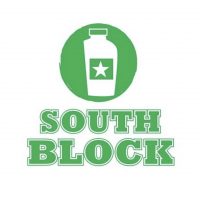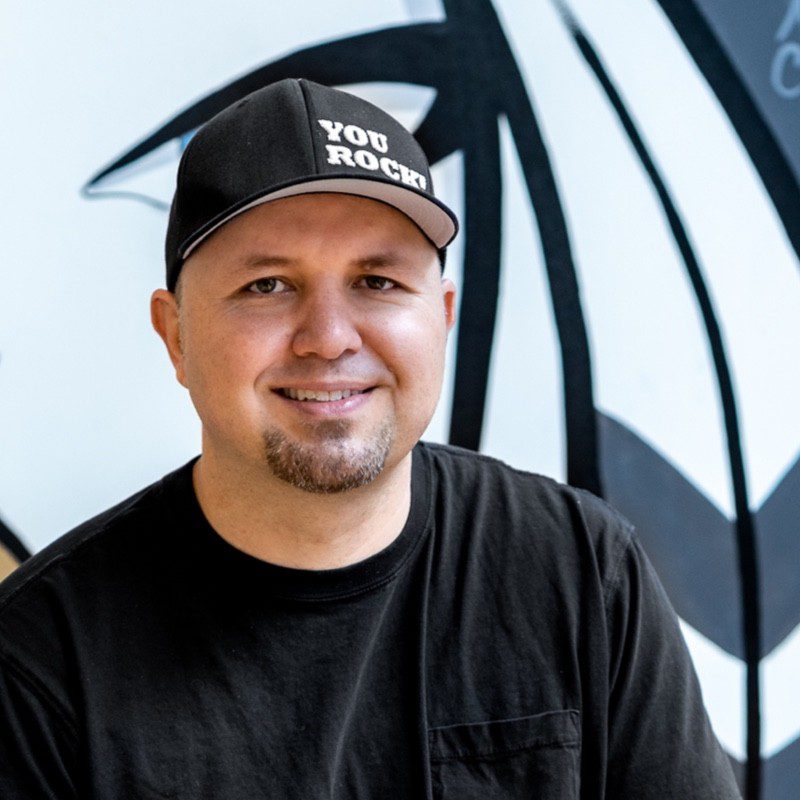Episode Summary
This week, we’re excited to continue our discussion on labor with another innovative restaurant leader! In this episode, Jen sits with the Founder & CEO of her favorite local juice shop in the DC Area, Amir Mostafavi of South Block.
South Block currently sits at 11 locations in total, all in the DC Area. Unfortunately, like many fast-food/quick-service brands, South Block was not immune to the COVID Pandemic. However, due to Amir’s leadership, he was able to keep all of his staff employed during the lockdowns.
Amir is THE model business owner for this new restaurant era. Company culture is no longer in the backseat, it should be front of mind for every brand & operator in the industry!
Guests-At-A-Glance
 Name: Amir Mostafavi
Name: Amir Mostafavi  What he does: Amir is the Founder & CEO of South Block Juice, Fruitful Planet, and Bowl Kits.
What he does: Amir is the Founder & CEO of South Block Juice, Fruitful Planet, and Bowl Kits.  Key Quote: “I tell my team all the time, ‘We love our guests. We want our guests to have a great experience, but guess what? I love you guys more. Because if I don’t love you guys more, how am I expecting you to love our guests, right?’ ” .
Key Quote: “I tell my team all the time, ‘We love our guests. We want our guests to have a great experience, but guess what? I love you guys more. Because if I don’t love you guys more, how am I expecting you to love our guests, right?’ ” .  Where to find Amir: LinkedIn
Where to find Amir: LinkedIn 
Key Insights
 Rule #1: Don’t be a jerk because your people will quit.
Rule #1: Don’t be a jerk because your people will quit.
Amir worked at his first food-service job for ONLY two weeks. His reason for quitting so soon was simple — his manager was a jerk! Bad managers can easily affect your staff retention, because as Amir puts it, “people don’t want to work for jerks”.
 Rule #2: Put your team in your dream.
Rule #2: Put your team in your dream.
To help create a positive company culture, Amir believes in including your “people in your dream.” One of the innovative ways Amir has included his employees in South Block’s success is through an employee profit-sharing program — his team is rewarded bonuses due to the success and profitability of the company.
 Rule #3: Connect to the community.
Rule #3: Connect to the community.
Hear from Amir about how South Block Juice serves the entire community. His non-profit called Fruitful Planet donates fresh fruits and veggies to local food banks and shelters. Check it out!
One of South Block’s core values is “Small acts can make big impacts.” They’ve donated over 45,000 pounds of fruits and veggies in less than two year. Wow.
 Your Culture is Never Perfect.
Your Culture is Never Perfect.
Amir admits that even South Block doesn’t have a 100% perfect company culture, but then again, no one does. For him, the difference-maker has been prioritizing the needs of his employees, above all else (that includes his guests)!
Episode Highlights
We Sell Juice and Smoothies, But We’re in the People Business
Amir likes selling juices & smoothies, but his real passion is people. Like many small business owners, he has found a purpose in giving back. For him, these restaurants are an innovative way for him to spur opportunity in the local community and create actual change on the ground.
“I started getting motivated by the idea that we really do have an opportunity to impact people’s lives. […] I always use the words, ‘opportunity and hope.’ I’ve tried to create an environment where we give our team the same types of opportunities and hopes and dreams [I had when I started the business]. Why would I expect my employees to stay with me if they don’t feel like they’re a part of that dream, a part of that mission?”
The Importance of Finding the Right Fit
Leaders are vital to culture. Employees are vital to culture. And culture matters to organizational success.
“If people don’t come into your company recognizing the value of it [a positive work environment] or wanting that for themselves, then you’re probably already setting yourself up for potential failure when you’re trying to build your company culture. So, you need to have a team of people who are there for that purpose. It [company culture] is important to a lot of people, especially the new millennial generation. It’s much more important that they’re a part of something meaningful, a part of something where they feel like they can make a difference, have an impact, and that they’re not wasting their time. And nobody wants to be part of a toxic environment.”
